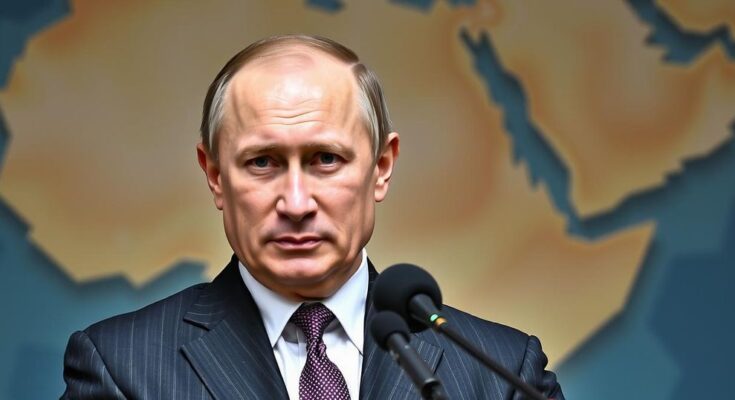Vladimir Putin faces significant resistance in Africa as Sudan and Libya reject Russian military advances, particularly a proposed naval base in Sudan and increased military presence in Libya. These developments exacerbate Russia’s geopolitical challenges following the instability created by the fall of Bashar al-Assad’s regime in Syria, potentially jeopardizing its regional influence amid growing Western concerns.
In a significant setback for Russia’s geopolitical strategy in Africa, key allies Sudan and Libya have publicly resisted Russian military expansions within their territories. Reports indicate that Sudan has formally declined Russia’s request to establish a naval base at Port Sudan, a situation exacerbated by fears of potential retribution from Western nations. Furthermore, Libyan Prime Minister Abdul Hamid Dbeibeh has articulated a strong opposition to any attempts by Russia to reinforce its military foothold in Libya. Dbeibeh’s insistence that foreign military presence must be sanctioned by official agreements underscores a growing sovereign resistance against outside influence.
The context of these developments can primarily be traced back to the shifting dynamics following the fall of Bashar al-Assad’s regime in Syria. As Russia contemplates a potential withdrawal from Syria and examines its military alignments, its aspirations to fortify relationships in the African region face considerable obstacles. The loss of influence in these two North African nations hampers Moscow’s ability to maintain a strategic presence conducive to its broader regional agenda.
Historically, Russia has pursued establishing a naval base in Sudan since 2019; however, ongoing civil unrest and conflict have stymied these efforts. Additionally, Russia’s support of conflicting factions through the Wagner Group signifies a complex involvement in Sudanese affairs that complicates diplomatic relations. Recently, there has also been speculation regarding the movement of military resources from Syria to Libya, further intensifying concerns among neighboring countries about Russia’s military ambitions.
In light of these tensions, Italian Defense Minister Guido Crosetto has expressed apprehension over the strategic implications of Russian military presence so close to the Mediterranean. Concurrently, Prime Minister Dbeibeh has reiterated that any movement of Russian military assets must comply with existing agreements with Libya, rejecting unilateral or coercive incursions. The broader implications for Russia’s influence hinge on its ability to navigate these emerging challenges in Africa as the geopolitical landscape continues to evolve.
The article discusses Russia’s diminishing influence in Africa following recent pushbacks from critical allies in Sudan and Libya. This reversal comes against the backdrop of a potential withdrawal of Russian military support from Syria amidst the fallout from Bashar al-Assad’s regime. The importance of this situation lies in its implications for Russia’s strategic ambitions on the African continent, where it seeks to secure military footholds amid rising global tensions. The references to past commitments to establish military bases and ongoing conflicts demonstrate the interrelated nature of regional geopolitics and international relations.
In conclusion, Russia’s efforts to solidify a military presence in Africa face significant hurdles with the recent rejections from Sudan and Libya. These developments illustrate growing national sentiments against foreign military dominance and the complexities of Russia’s strategic objectives, particularly in light of its diminishing influence in Syria. The situation highlights the challenges that Russia must navigate to maintain its geopolitical aspirations in an increasingly fragmented global landscape.
Original Source: www.newsweek.com




